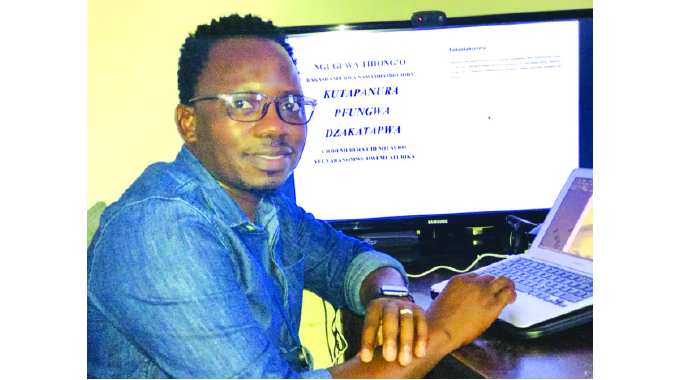Celebrating African languages

Herald Correspondent
THERE was a flurry of activity early this week with exchanges of celebrations, after an announcement that a Zimbabwean based in South Africa had completed translation of an English book into ChiShona.
When John Mambambo embarked on the translation of “Decolonising the Mind” by Ngugi wa Thiongo into ChiShona, little did he understand the magnitude and impact of the project.
Professor wa Thiongo was thrilled to learn of the completion of the project, while within the African languages fraternity, the mood was as if someone had dropped a lit matchstick in the middle of a dry Savannah veld in the month of August.
At the weekend he wrote: “Congratulations on the translation and the reception. We have to develop our own as languages of written thought in literature, science, technology, philosophy etc…
“Translations played a big role in developing English, German, French as they emerged from under the hegemony of Latin. It will do the same for African languages and you have shown the way.”
There were equally ecstatic congratulatory messages from the National Language Institute, the African Research and Languages Institute, as well as writers in African languages.
The Indigenous African Languages Association (IALA) welcomed the development, adding that it would contribute to enhancement of the development of indigenous African languages.
Quoting from “Decolonising the Mind”, Mr Musariri from the IALA said language is a carrier of culture.
“There is a negation and neglecting of our language . . . Language as culture is the collective memory bank of a people’s experience in history.
“That history is crucial in as much as development of a nation is concerned, because it acts as a pedestal for the future.
“Take into consideration how the Asian dragons and Asian tigers developed. It was as a result of the importance of language. They resisted the imperialist language and developed using their own language…”
Writer/playwright Aaron Chiundura-Moyo likes the idea that the translation has generated so much interest. He hopes that in Zimbabwe this will lead to a profound understanding of what has been happening with regards to writing in indigenous languages.
Mambambo described the response to his project as “overwhelming”, adding: “The streets (social media platforms) are NOISY right now. I never thought the project would ultimately turn out to be this big.”
New doors of opportunities are beckoning.










Comments